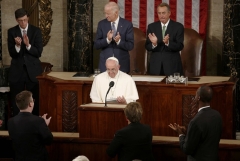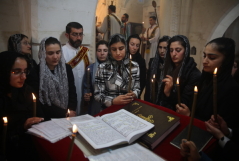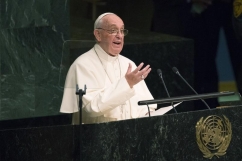The leadership style of Pope Francis is in contrast to the "privileged and calculating" leadership styles of the past and may turn out to be his lasting legacy, according to a former Ambassador to the Holy See.
Francis Campbell, currently vice chancellor of St Mary's University in Twickenham, said: "Francis is showing other leaders in all walks of life that the servant leader with the prophetic voice is more appropriate to our age than the privileged and calculating leadership styles of the past. His example may be as powerful as his message and be his lasting legacy."
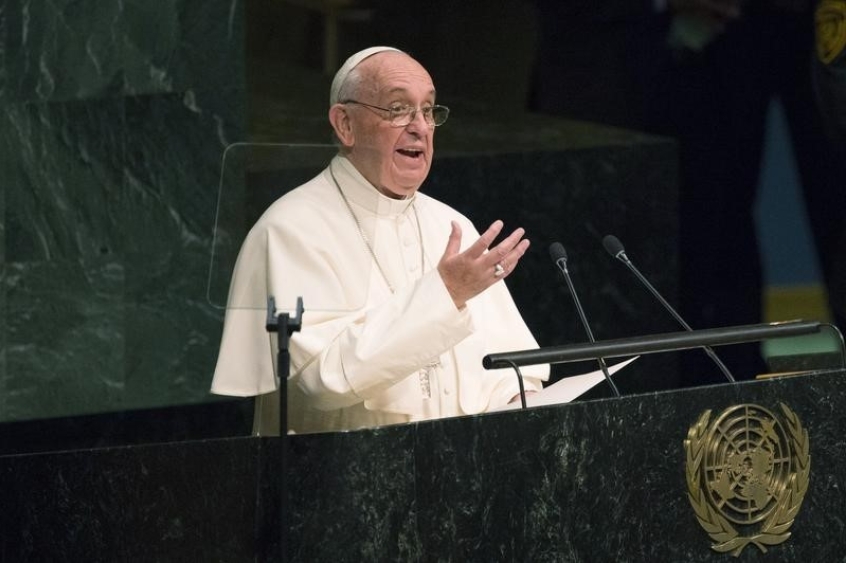
Campbell, who helped Britain prepare for the visit of Pope Benedict XVI five years ago, was speaking on BBC Radio 4's Thought for the Day as thousands of Catholics in Philadelphia prepared for the Pope's final Mass tomorrow at the Vatican-sponsored World Meeting of Families.
Campbell said he was in New York last week with preparations for the visit in full swing, where he saw potholes on Fifth Avenue being filled in and scaffolding around St Patrick's Cathedral being dismantled. "It was all so reminiscent of events here in London five years ago, ahead of Pope Benedict's state visit to the United Kingdom."
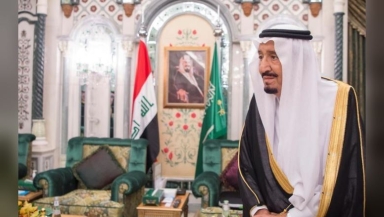
He said he knew from experience that there was no diplomatic manual for visits of the Pope. "They are unique, regardless of the context. Yet despite the modern protocol that accompanies state visits, it is somewhat counter-cultural that the world's oldest office, the Papacy, which is not a democracy, is giving such a powerful and somewhat unique lesson in leadership."
The Pope's informal and simple style is connecting with people far beyond the Catholic fold, he said. "His message of mercy and forgiveness and solidarity is one which is both challenging and reassuring in equal measure, both within and outside the Catholic Church. He is forcing people to think and to reappraise."
But his leadership style also gives tangible expression to deeply held principles, he added, referring to the decision by the Pope to ride in a small Fiat, in contrast to the large cars of security and officials. "No doubt Francis' scaling back of security to get closer to people has giventhe US Secret Service many headaches. But it is both symbolic and constant. It also challenges many other leaders who perhaps enjoy the trappings of office, and where security can become a welcome barrier between leader and people and bring rights of privilege over the rest of society."
Modern leaders can learn from the Pope's style.
Campbell said: "Francis has a prophetic leadership style rather than a calculating one. He is not thinking about how a situation can play to his advantage or how he can get to the next level. In a temporal sense, he is there, and so the Papacy brings an immense freedom as an office. It allows a prophetic voice to come forth in a way that few other leadership offices can safely permit. But that only answers part of the question about why Francis's style and message is still captivating so many. That prophetic voice, to be truly prophetic, has to be authentic, consistent and sincere. It has to speak truth in times of harmony and disharmony. In Francis's case, the message is not his, but Christ's, and delivered in a rather unique, direct and simple style. People seem to be responding. They are looking at the words and then his actions. They are seeing a consistency, not a contradiction."










